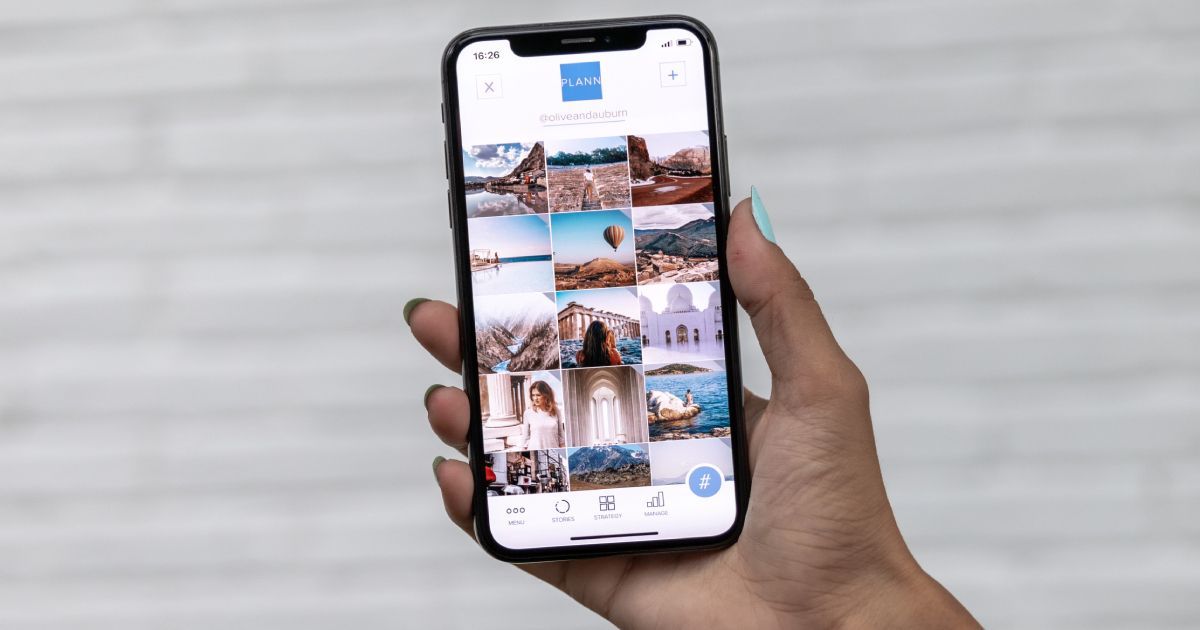Local Marketing 101: Everything You Should Know

Local marketing is a vital strategy for businesses of all sizes. Whether you operate a small neighborhood bakery or manage a chain of local restaurants, effective local marketing can significantly impact your success.
In this comprehensive guide, we'll explore the essentials of local marketing, providing you with a solid foundation to attract and engage your local audience.
Understanding Local Marketing

Local marketing, often referred to as location-based marketing, is a dynamic strategy that centers on promoting your products or services to customers residing within a well-defined geographic area. The primary objective of local marketing is to establish meaningful connections with nearby consumers, fostering brand recognition and loyalty, while also driving foot traffic to either your physical store or your online presence. It recognizes the immense value in catering to the immediate community and capitalizes on the notion that customers often prefer to engage with businesses that are close to them. By acknowledging the specific geographic context, local marketing can create highly personalized and relevant marketing campaigns that resonate with local audiences.
Successful local marketing thrives on its ability to adapt to the unique characteristics and preferences of local audiences. It understands that what works for one region or neighborhood might not be as effective in another. It's about tailoring your marketing efforts to address the specific needs, tastes, and cultural nuances of your local community. This approach extends beyond just online advertising and SEO; it encompasses the creation of locally-relevant content, engagement with the local community on social media, and building partnerships with neighboring businesses. Through these strategies, local marketing positions your brand as an integral part of the community, enhancing your reputation and drawing customers in your direction.
Below are the essential elements of local marketing:
1) Google My Business (GMB)

Creating and optimizing your Google My Business (GMB) listing is an indispensable step in the realm of local marketing. GMB serves as the digital front door to your business, acting as a bridge between you and your potential local customers. This free, user-friendly tool is a gateway to local visibility, enabling your business to appear prominently in local search results. By providing essential information like your physical address, business hours, and customer reviews, your GMB listing not only makes it easier for local customers to find and contact you but also builds trust by offering transparency and accessibility.
The address and hours of operation on your GMB listing are critical details that guide potential customers to your doorstep. Whether someone is looking for your business on Google Maps or conducting a local search, the accuracy of this information ensures you don't miss out on potential foot traffic. Moreover, the inclusion of customer reviews on your GMB listing serves as social proof, influencing the decisions of prospective customers. Positive reviews can enhance your credibility, while timely responses to reviews, whether positive or negative, demonstrate your commitment to customer satisfaction. Thus, GMB is not just a directory but a powerful tool that shapes the local perception of your business and significantly contributes to your local marketing success.
2) Local SEO

Tailoring your Search Engine Optimization (SEO) strategy to local searches is an imperative aspect of successful local marketing. Local SEO distinguishes itself by focusing on optimizing your digital presence to specifically cater to the needs and preferences of your local audience. At the core of this approach is the utilization of local keywords, which involve incorporating location-specific terms into your website's content. By seamlessly weaving these keywords into your web pages, you can enhance your visibility in local search results and attract customers searching for products or services within your vicinity.
Local SEO goes beyond keyword optimization; it also emphasizes the importance of producing high-quality, relevant content. Content marketing that addresses local interests, events, and concerns demonstrates your commitment to the community and helps build a genuine connection with your audience. Moreover, creating compelling, location-specific content positions you as an authority in your area, drawing more visitors to your website and enticing them to engage with your business. In addition to content, acquiring local backlinks from other reputable websites in your region bolsters your local SEO efforts. These backlinks enhance your website's credibility and authority in the eyes of search engines, which can lead to higher search result rankings and increased organic traffic from local searches.
3) Content Marketing

Creating valuable, location-specific content is a potent strategy in local marketing that allows you to become a recognized authority within your community. This approach involves crafting content that directly speaks to the interests and concerns of your local audience. Whether through informative blog posts, engaging videos, or thought-provoking social media content, your aim is to create material that resonates with your community. By addressing local events, issues, or news, you showcase your business as an active and caring member of the neighborhood, cultivating trust and loyalty among your audience.
Blogs that discuss local topics, community events, or neighborhood stories can be an effective way to establish your authority. These posts not only draw local visitors to your website but also position you as a knowledgeable source in your area of operation. Similarly, producing videos that highlight your involvement in local initiatives, or sharing behind-the-scenes glimpses of your business interacting with the community, can strengthen your local presence. Leveraging social media platforms to disseminate content about local events and issues allows you to actively engage with your audience, participate in relevant conversations, and demonstrate your genuine commitment to the community. Overall, location-specific content not only bolsters your local marketing efforts but also nurtures a strong sense of community and connection, making your brand a trusted and respected figure in the neighborhood.
4) Social Media

Actively engaging with your local community on social media platforms is a powerful strategy to cultivate a robust local presence for your business. These platforms serve as vibrant hubs of local activity and communication, making them ideal spaces for businesses to connect with their immediate community. To establish a strong local presence, it's essential to share not only your brand's content but also local news, events, and community-driven initiatives. By curating and sharing such content, you demonstrate your active participation in the life of your local area, building a reputation as a caring and connected business.
Promoting local events is another effective way to engage with your community on social media. Whether it's a charity fundraiser, a neighborhood festival, or your business's own special event, sharing these happenings can spark interest and excitement among your followers. Interacting with your audience by responding to comments, addressing queries, and actively participating in conversations about local matters further solidifies your local presence. Engaging with your community on social media not only increases your brand's visibility but also establishes your business as an integral part of the local fabric, fostering a deeper and more meaningful connection with your customers.
5) Online Advertising

Leveraging targeted online advertising through platforms like Google Ads and Facebook Ads is a pivotal component of a successful local marketing strategy. These platforms empower businesses to pinpoint and connect with potential customers in their immediate geographic area. Google Ads, for instance, enables you to create location-specific campaigns, allowing your business to appear prominently in search results when local customers are looking for products or services in your vicinity. It offers a variety of options, including local search ads, display ads, and Google Maps ads, which can be precisely tailored to match your local marketing goals.
Facebook Ads, on the other hand, offers an array of location-based targeting options. You can define your audience based on parameters like location, age, interests, and behavior, making it highly effective for reaching potential customers in your local area. By creating eye-catching ad content and deploying it strategically, you can place your business in front of people who are most likely to be interested in your offerings. This results in cost-effective marketing campaigns that maximize your ad spend by reaching local customers who are genuinely interested in your products or services. Targeted online advertising not only enhances your local visibility but also boosts the efficiency of your marketing efforts by connecting you with the right local audience at the right time.
6) Email Marketing

Building and maintaining an email list of local customers is a valuable asset in your local marketing toolbox. An email list is a direct line of communication to your most loyal and interested customers. To create your list, encourage website visitors and in-store customers to subscribe to your emails by offering incentives like discounts or exclusive access to local events or promotions. Make it a simple and straightforward process for customers to sign up, ensuring that they receive clear value by being part of your email community. You can also collect emails at local events, fairs, or through partnerships with other businesses in your area.
Once you've assembled your email list, the next step is to send targeted promotions and updates to your local subscribers. Tailor your emails to reflect the interests and needs of your local customer base. Highlight local events, seasonal promotions, or community involvement in your emails to demonstrate your active participation in the neighborhood. Consider segmenting your email list to send more personalized content. For instance, you can send separate promotions to local customers who have purchased from your business before and those who have just subscribed to your emails. By delivering relevant, timely, and engaging content to your local audience, you can nurture a sense of community and strengthen customer loyalty, ultimately driving more foot traffic to your physical location and boosting online sales.
7) Local Partnerships

Collaboration with other local businesses or organizations can be a dynamic strategy to amplify your local marketing efforts. By joining forces, you can pool resources and expertise to reach a broader audience and create a win-win situation for all involved. One effective approach is co-hosting local events or initiatives. Whether it's a community fair, a charity fundraiser, or a workshop, collaborating with other businesses allows you to share responsibilities and the associated costs, making such events more feasible and impactful. Moreover, co-hosted events often draw larger crowds as both businesses promote them, expanding your reach and exposing your brand to a wider local audience.
Cross-promotion is another valuable tactic that can bolster your local marketing endeavors. Partnering with complementary local businesses to promote each other can open new doors for your brand. For instance, a local coffee shop could collaborate with a nearby bookstore to offer discounts or special offers to each other's customers. This mutually beneficial arrangement not only increases foot traffic but also enhances the overall customer experience. Cross-promotion can extend beyond physical businesses and include digital collaborations, such as guest blog posts or joint social media campaigns. By working together with other local entities, you can tap into their existing customer base while introducing your business to a fresh audience, resulting in an expanded local reach and a strengthened local presence.
Tips for Successful Local Marketing
- Consistency: Ensure that your business information, including name, address, and phone number (NAP), is consistent across all online platforms.
- Customer Reviews: Encourage satisfied customers to leave positive reviews on platforms like Google and Yelp.
- Mobile Optimization: With the increasing use of mobile devices, make sure your website is mobile-friendly for a seamless user experience.
- Local Keywords: Target relevant local keywords in your content and SEO efforts.
- Track Your Performance: Monitor the effectiveness of your local marketing efforts through analytics tools and adjust your strategies accordingly.
Top Local Marketing Tools
- Google My Business (GMB): GMB is a fundamental tool for local marketing. It allows you to manage your business listing, respond to customer reviews, post updates, and gain visibility in local search results.
- Moz Local: Moz Local is a robust platform for managing your online listings and ensuring your business information is accurate across various directories and platforms. It helps improve your local SEO.
- Hootsuite: Hootsuite is a social media management tool that can help you schedule and manage posts across multiple social platforms. This is valuable for maintaining a consistent local social media presence.
- Yext: Yext is a location data management tool that assists businesses in controlling their digital presence across a wide range of directories, maps, and search engines, ensuring accurate and consistent listings.
- Mailchimp: Mailchimp, a popular email marketing platform, is useful for building and maintaining an email list of local customers and sending them targeted promotions and updates. It offers segmentation and personalization features to make your email marketing more effective.
Final Thoughts
Local marketing is indispensable for businesses aiming to connect with their immediate community and grow their customer base. By embracing local SEO, online and offline marketing strategies, and maintaining a strong online presence, you can build a loyal local customer following that supports your business's long-term success.
Remember that the key to successful local marketing is understanding your local audience and delivering what they need and want.





